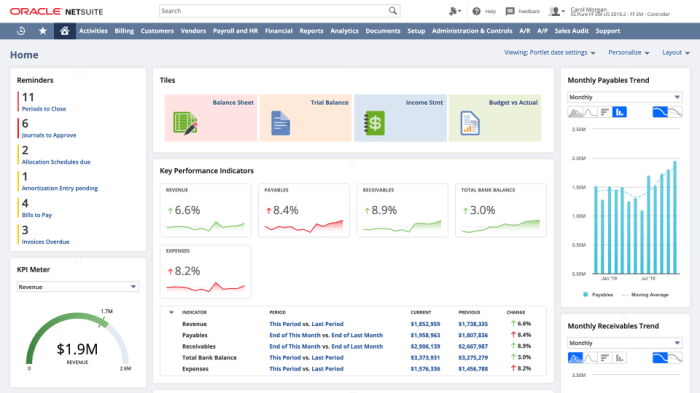Crm software for manufacturing industry – The manufacturing industry, characterized by complex supply chains, intricate production processes, and a diverse customer base, faces unique challenges in managing customer relationships. Effectively managing these relationships is crucial for growth, profitability, and sustained competitive advantage. This is where a robust Customer Relationship Management (CRM) system becomes indispensable. This article delves into the critical role of CRM software in the manufacturing sector, exploring its features, benefits, and considerations for successful implementation.
Understanding the Unique Needs of Manufacturing CRM
Unlike other industries, manufacturing CRMs must address specific needs related to production, inventory management, and supply chain optimization. Standard CRM functionalities need to be augmented with features tailored to the complexities of manufacturing. These include:
Key Features of Manufacturing CRM Software:
- Inventory Management Integration: Real-time visibility into inventory levels, enabling accurate forecasting and order fulfillment. This often integrates with ERP (Enterprise Resource Planning) systems.
- Production Scheduling & Tracking: Monitoring production progress, identifying bottlenecks, and ensuring timely delivery of goods. This can involve features for managing work orders and tracking materials.
- Supply Chain Management: Managing relationships with suppliers, tracking materials, and optimizing the entire supply chain for efficiency and cost reduction. This often includes features for vendor relationship management (VRM).
- Project Management Capabilities: Managing complex projects, tracking milestones, and ensuring projects are completed on time and within budget. This is especially crucial for custom manufacturing orders.
- Service Management: Managing after-sales service requests, scheduling maintenance, and tracking service performance. This can include features for managing warranty claims and service contracts.
- Advanced Reporting & Analytics: Generating detailed reports on sales, production, customer interactions, and other key metrics to inform decision-making. This often includes dashboards for real-time monitoring.
- Integration with ERP and other systems: Seamless data flow between the CRM and other enterprise systems, ensuring data consistency and efficiency.
Benefits of Implementing a CRM in Manufacturing
Investing in a tailored manufacturing CRM offers numerous advantages, leading to significant improvements in various aspects of the business:
Improved Customer Relationships:
- Enhanced Communication: Centralized communication platform for seamless interaction with customers, suppliers, and internal teams.
- Personalized Customer Service: Access to complete customer history, enabling personalized service and targeted marketing efforts.
- Increased Customer Retention: Proactive engagement and timely issue resolution leading to higher customer satisfaction and loyalty.
Streamlined Operations:
- Improved Efficiency: Automation of tasks like lead management, order processing, and reporting, freeing up valuable time for strategic initiatives.
- Better Inventory Control: Reduced stockouts and overstocking, optimizing inventory levels and minimizing storage costs.
- Enhanced Production Planning: Accurate forecasting and optimized production schedules, leading to timely delivery and reduced production delays.
Increased Profitability:, Crm software for manufacturing industry
- Reduced Costs: Optimized processes, reduced waste, and improved efficiency leading to significant cost savings.
- Improved Sales Performance: Enhanced lead management, improved sales forecasting, and targeted marketing efforts resulting in increased sales revenue.
- Better Decision-Making: Data-driven insights from comprehensive reports and analytics, enabling informed business decisions.
Choosing the Right Manufacturing CRM Software
Selecting the appropriate CRM solution requires careful consideration of several factors:
Key Considerations:
- Scalability: Ensure the CRM can adapt to the growing needs of your business.
- Integration Capabilities: Verify seamless integration with existing ERP and other enterprise systems.
- Customization Options: Choose a CRM that can be tailored to meet your specific business requirements.
- User-Friendliness: Select a system that is easy to use and adopt by your team.
- Cost & ROI: Evaluate the total cost of ownership and the potential return on investment.
- Vendor Support: Choose a vendor with a strong track record and reliable customer support.
Popular Manufacturing CRM Software Options
Several leading CRM providers offer solutions specifically tailored for the manufacturing industry. Research and compare features, pricing, and reviews before making a decision. Some examples include Salesforce Manufacturing Cloud, Microsoft Dynamics 365 for Manufacturing, and industry-specific solutions from smaller vendors.
Implementation and Ongoing Support
Successful CRM implementation requires careful planning, training, and ongoing support. A phased approach, starting with a pilot program, can minimize disruption and maximize adoption. Regular training and ongoing support from the vendor are essential for maximizing the benefits of the CRM system.
Frequently Asked Questions (FAQ)
- Q: What is the average cost of a manufacturing CRM? A: The cost varies significantly depending on the features, number of users, and vendor. Expect a range from a few hundred dollars per month to several thousand dollars per month for enterprise-level solutions.
- Q: How long does it take to implement a manufacturing CRM? A: Implementation time varies depending on the size and complexity of the system and the organization’s readiness. It can range from a few weeks to several months.
- Q: What are the key metrics to track after CRM implementation? A: Key metrics include sales growth, customer retention rate, lead conversion rate, production efficiency, and customer satisfaction.
- Q: Can a CRM integrate with my existing ERP system? A: Many CRMs offer robust integration capabilities with various ERP systems. Ensure compatibility before selecting a solution.
- Q: What kind of training is needed for my team? A: Comprehensive training is crucial for successful adoption. Training should cover all aspects of the system, from basic navigation to advanced functionalities.
Resources: Crm Software For Manufacturing Industry
- Salesforce Manufacturing Cloud
- Microsoft Dynamics 365 for Manufacturing
- (Add more relevant links to other reputable CRM providers and industry articles here)
Call to Action
Transform your manufacturing business with a powerful CRM solution. Contact us today for a free consultation and discover how we can help you optimize your customer relationships and drive growth.
FAQs
What are the key features to look for in a manufacturing CRM?
Key features include robust inventory management, project management capabilities, integration with ERP systems, and advanced reporting and analytics.

Source: orases.com
How much does CRM software for manufacturing typically cost?

Source: method.me
Costs vary widely depending on the size of the business, the features required, and the chosen vendor. Expect a range from affordable cloud-based options to more expensive enterprise solutions.
What is the typical implementation timeline for a manufacturing CRM?
Implementation timelines depend on the complexity of the system and the size of the organization. Expect a process ranging from a few weeks to several months.
How can I ensure my CRM data is secure?
Choose a vendor with strong security protocols, including data encryption and regular security audits. Implement robust internal security measures as well.
What kind of training is needed for employees to use a manufacturing CRM effectively?
Vendors typically offer training programs. Ongoing training and support are crucial for successful adoption and maximizing the system’s benefits.
